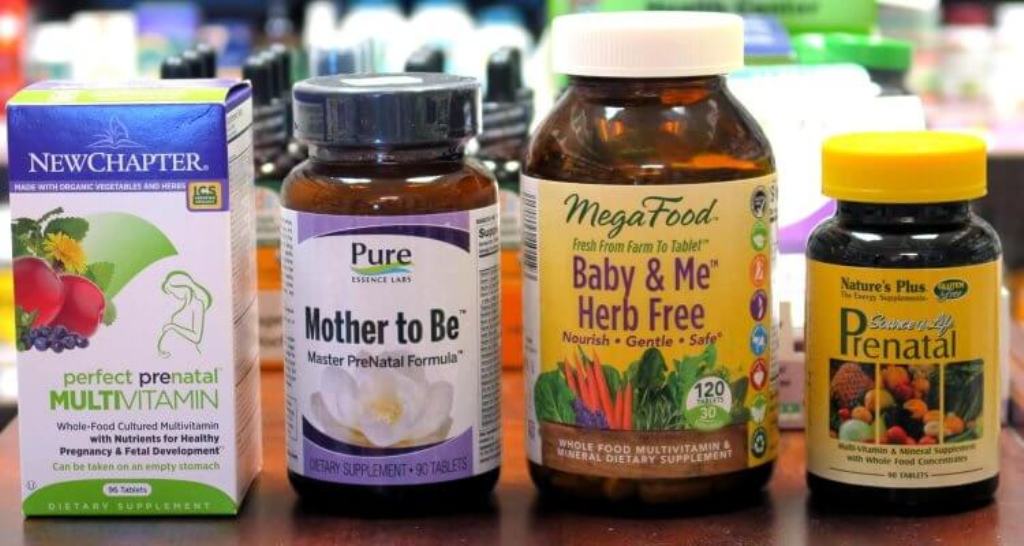
Prenatal Vitamins: Facts and Food Sources
When it comes to the “best pregnancy diet,” there is no magic involved. The common foods to take during pregnancy are fruits, whole grains, protein, fats, and vegetables. Yes, this is diet has been going around for a long time.
However, there are some important minerals and vitamins that deserve proper attention during pregnancy. No women should neglect the use of natural prenatal vitamins. During pregnancy, the human body deserves a dose of health boosters. The only thing is, there are a lot of supplements out there and choosing the right one is a big task.
First of all, it is important for you to gather the facts related to prenatal vitamins.
Prenatal Vitamins

For starters, prenatal vitamins are suitable for pregnant women. But, many experts suggest starting taking prenatal vitamins before pregnancy. The basic purpose of prenatal vitamin is to promote the growth of you and your baby in a very healthy and free of deficiency way.
What kind of Prenatal Vitamins should you take?
Usually, it is the doctor’s job to recommend you a good and effective prenatal vitamin. With the daily intake of prenatal vitamins, it is important to have a healthy diet as well. Giving your body healthy supplements and nutritious foods can boost your health a thousand times.

Look for prenatal vitamins that contain the following:
Vitamin E
Vitamin E is responsible for shaping the body to a strong level. Vitamin E uses the muscles and the red blood cells to make a difference in the body. If you don’t want to take Vitamin E supplements, then you can go for natural sources like wheat germ, fortified cereals, vegetable oil, and spinach.
Vitamin Beta and A
Vitamin Beta and A are essential for helping the bones, and the teeth grow. Your daily intake of Vitamin A and Beta should be 770mcg. They can be found in carrots, broccoli, yellow fruits, liver, eggs, green and yellow vegetables, eggs, cantaloupe, and pumpkin.
Niacin B3
The intake of Niacin B3 can promote digestion, nerves, and healthy skin. This vitamin can be found in fortified cereals, fish, peanuts, milk, high-protein foods, meats, eggs, and bread.
Vitamin D
Vitamin D is crucial for the development of the bones, body, and teeth. The intake of vitamin D can be from sunshine, milk, and fatty fish.
Vitamin C
Vitamin C is considered to be a very effective antioxidant. It protects the tissues from collapsing and promotes the body to take iron and boosts the immune system. Your regular Vitamin C intake can be from bell peppers, strawberries, tomatoes, citrus fruits, green beans, papaya, broccoli, and potatoes.
Thiamin B1
Thiamin is responsible for maintaining the energy level of the body and regulates the nervous system. It is found in fortified cereals, organ meats, rice, berries, pork, pasta, whole grain, pork, and legumes.
Folic Acid
Folic acid is very important for the body, especially for the body that is growing another body. Folic acid reduces the chances of spina bifida and other birth defects.
It is found in cauliflower, beans, peas, oranges, green leafy veggies, fortified cereals, pasta, nuts, broccoli, strawberries, and spinach.
Iron
Iron reduces the chances of anemia and helps the brain to function properly. It is found in dried beans, grains or oatmeal, spinach, pork, and beef.
Zinc
Zinc produces the enzymes and the insulin needed for the body to function correctly. It is found in beans, whole grains, dairy products, red meats, nuts, poultry, and oysters.




